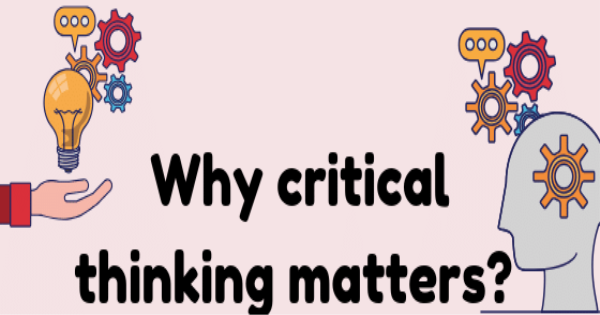In today’s fast-paced world, developing a growth mindset is essential for personal and professional success. A growth mindset, a concept popularized by psychologist Carol Dweck, refers to the belief that abilities and intelligence can be developed through dedication, hard work, and learning. Unlike a fixed mindset, which assumes that talents and intelligence are static, a growth mindset empowers individuals to embrace challenges, learn from failures, and continuously improve. In this article, we’ll explore actionable strategies to cultivate a growth mindset, along with tips to stay motivated and resilient.

What is a Growth Mindset?
A growth mindset is the belief that abilities and intelligence are not fixed traits but can be developed over time. This mindset encourages individuals to:
-
Embrace challenges
-
Persist through obstacles
-
Learn from criticism
-
Find inspiration in others’ success
In contrast, a fixed mindset assumes that talents and intelligence are innate and unchangeable, leading to avoidance of challenges and fear of failure.
Fixed Mindset vs. Growth Mindset
| Aspect | Fixed Mindset | Growth Mindset |
|---|---|---|
| Challenges | Avoids challenges | Embraces challenges |
| Effort | Views effort as fruitless | Sees effort as a path to mastery |
| Criticism | Ignores constructive feedback | Learns from criticism |
| Success of Others | Feels threatened by others’ success | Finds inspiration in others’ achievements |
How to Develop a Growth Mindset
1. Embrace Challenges
Challenges are opportunities for growth. Instead of avoiding difficult tasks, actively seek them out. For example:
-
Take on a new project at work
-
Learn a new skill or hobby
-
Step out of your comfort zone regularly
2. Learn from Failure
Failure is not the end but a stepping stone to success. Reflect on what went wrong and how you can improve. Ask yourself:
-
What did I learn from this experience?
-
How can I approach this differently next time?
3. Cultivate a Love for Learning
A growth mindset thrives on continuous learning. Dedicate time to expand your knowledge and skills.
-
Read books, articles, or research papers
-
Enroll in online courses or workshops
-
Attend seminars or webinars
4. Replace Negative Self-Talk with Positive Affirmations
Your inner dialogue shapes your mindset. Replace limiting beliefs with empowering thoughts. For example:
-
Instead of saying, “I’m not good at this,” say, “I’m improving with practice.”
-
Replace “I can’t do this” with “I’ll figure it out.”
5. Seek Feedback and Learn from Criticism
Constructive criticism is a valuable tool for growth. Welcome feedback and use it to refine your skills.
-
Ask for feedback from peers, mentors, or supervisors
-
Reflect on the feedback and create an action plan
6. Celebrate Effort, Not Just Results
Focus on the process rather than the outcome. Acknowledge the effort you put into a task, regardless of the result.
-
Keep a journal to track your progress
-
Reward yourself for small milestones
7. Surround Yourself with Growth-Minded Individuals
The people you surround yourself with influence your mindset. Build a network of individuals who inspire and motivate you.
-
Join communities or groups with similar goals
-
Engage in meaningful conversations with mentors
Benefits of a Growth Mindset
Developing a growth mindset offers numerous benefits, including:
-
Increased Resilience: Bounce back from setbacks more effectively.
-
Improved Performance: Achieve higher levels of success through continuous improvement.
-
Enhanced Creativity: Embrace new ideas and innovative solutions.
-
Greater Fulfillment: Experience a sense of accomplishment and purpose.
Tools to Foster a Growth Mindset
Here are some tools and resources to help you develop a growth mindset:
| Tool | Description |
|---|---|
| Journaling | Track your progress, reflect on challenges, and celebrate achievements. |
| Mindfulness Apps | Use apps like Headspace or Calm to stay focused and reduce stress. |
| Online Courses | Platforms like Coursera or Udemy offer courses on personal development. |
| Books | Read books like Mindset: The New Psychology of Success by Carol Dweck. |
Frequently Asked Questions (FAQs)
1. Can anyone develop a growth mindset?
Yes, anyone can develop a growth mindset with consistent effort and practice. It requires self-awareness and a willingness to change.
2. How long does it take to develop a growth mindset?
The timeline varies for each individual. With daily practice, you can start seeing changes in a few weeks or months.
3. What are some signs of a growth mindset?
Signs include embracing challenges, learning from failures, and seeking opportunities for self-improvement.
Developing a growth mindset is a transformative journey that requires dedication, self-reflection, and a willingness to step out of your comfort zone. By embracing challenges, learning from failures, and surrounding yourself with positive influences, you can unlock your full potential and achieve lasting success. Start today by implementing these strategies and watch how your mindset—and your life—transforms.
Related Articles
-
 Ilmkidunya 05/Aug/2025
Ilmkidunya 05/Aug/2025How to Choose the Right Career Path as a Student
-
 Ilmkidunya 01/Aug/2025
Ilmkidunya 01/Aug/2025Trusted Education Consultants in Pakistan – Students Club
-
 Ilmkidunya 01/Aug/2025
Ilmkidunya 01/Aug/2025How Entry Test Patterns Are Changing in 2025
-
 Ilmkidunya 01/Aug/2025
Ilmkidunya 01/Aug/2025How to Prepare for University Admissions in 2025
-
 Ilmkidunya 27/Jul/2025
Ilmkidunya 27/Jul/2025Study vs. Skill: What Really Gets You Hired in 2025
-
 Ilmkidunya 27/Jul/2025
Ilmkidunya 27/Jul/2025Top 5 Career Options After FSC (Pre-Medical) in 2025
-
 Ilmkidunya 17/Jul/2025
Ilmkidunya 17/Jul/20255 Jobs for Computer Science & IT Students That Do Not Need Programming
-
 ilmkidunya 11/Jul/2025
ilmkidunya 11/Jul/2025Understanding Aptitude and Its Role in Career Planning
-
 Ilmkidunya 08/Jul/2025
Ilmkidunya 08/Jul/2025Top 10 Universities in Lahore – 2025 Guide
-
 Ilmkidunya 01/Jul/2025
Ilmkidunya 01/Jul/2025The Future of Artificial Intelligence in the Job Market
-
 Ilmkidunya 30/Jun/2025
Ilmkidunya 30/Jun/2025How to Set and Achieve SMART Goals
-
 Ilmkidunya 23/Jun/2025
Ilmkidunya 23/Jun/2025Top 10 Engineering Degrees With The Highest Demand in 2025
-
 Ilmkidunya 13/Jun/2025
Ilmkidunya 13/Jun/2025How Internships Help Shape Career Goals
-
 Ilmkidunya 13/Jun/2025
Ilmkidunya 13/Jun/2025Why Critical Thinking Matters Today More Than Ever
-
 ilmkidunya 21/May/2025
ilmkidunya 21/May/2025Top Tips for Building a Strong Academic CV in 2025 – Even with No Experience
-
 Ilmkidunya 14/May/2025
Ilmkidunya 14/May/2025How Languages Shape the Way We Think
-
 Ilmkidunya 13/May/2025
Ilmkidunya 13/May/2025From Idea to Invention: How Students Can Be Innovators
-
 Ilmkidunya 12/May/2025
Ilmkidunya 12/May/2025How to Learn Anything Faster: Techniques Backed by Science
-
 Ilmkidunya 06/May/2025
Ilmkidunya 06/May/2025Top Programming Languages to Learn in 2025
-
 ilmkidunya 28/Apr/2025
ilmkidunya 28/Apr/2025Best Short Courses Students Can Take After Matric and Intermediate

.gif)









.png)


Share Your Comments Questions Here